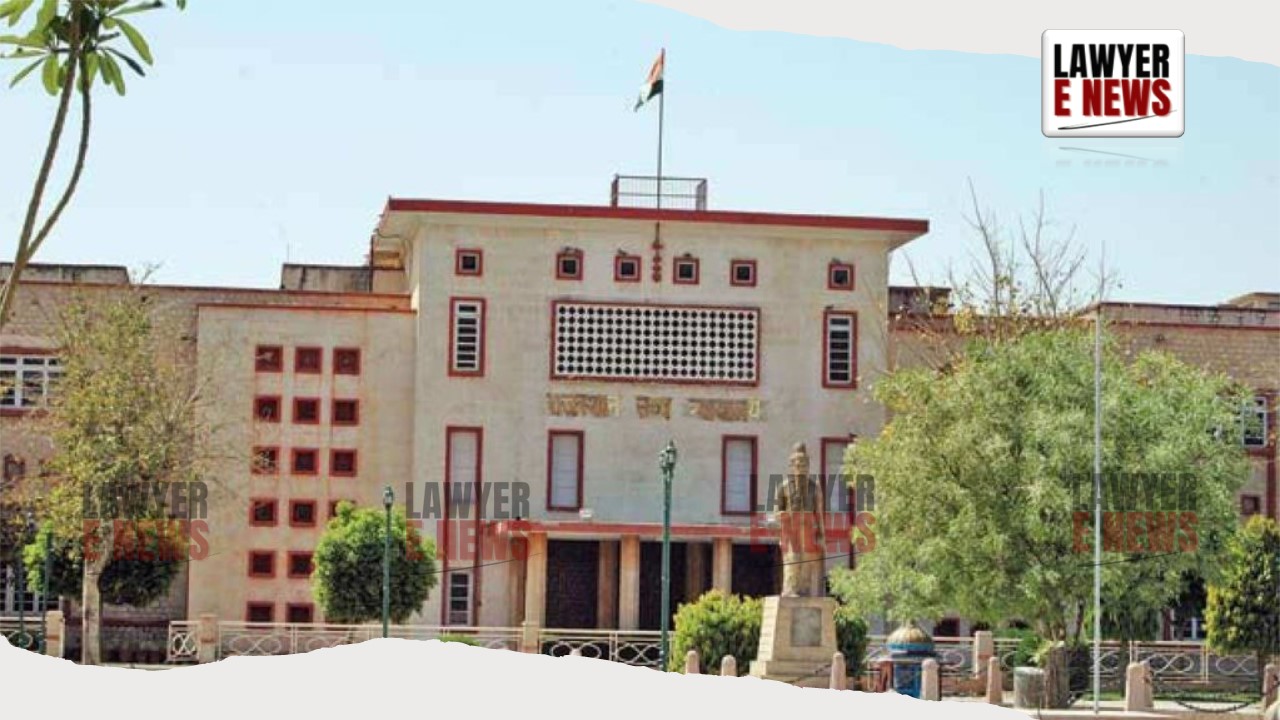-
by Admin
15 February 2026 5:35 AM



Rajasthan High Court at Jaipur set aside the reduction of grant-in-aid for three educational institutions, including Seth Motilal (P.G.) College, ruling that the State failed to follow the principles of natural justice. The Court held that the reduction in aid without issuing a show-cause notice or providing reasons violated statutory procedures under the Rajasthan Non-Government Educational Institutions Act, 1989, and the Rajasthan Non-Government Educational Institutions Rules, 1993.
The petitioners, all government-aided educational institutions, were originally granted 90% aid. On August 8, 2006, the Committee for Grant-in-Aid decided to reduce the grant for 46 institutions, including the petitioners, from 90% to 80%. This decision was implemented on October 14, 2009, without issuing any show-cause notice or providing reasons for the change in category and the subsequent reduction in aid.
The primary issue was whether the reduction in grant-in-aid without following the procedural safeguards and principles of natural justice was legally sustainable. The petitioners argued that under Section 7(6) of the Rajasthan Non-Government Educational Institutions Act, 1989, the sanctioning authority could reduce or suspend the grant only in case of a breach of terms and conditions. Moreover, the institutions were not given any opportunity to be heard before the grant was reduced, which they argued was a clear violation of natural justice as provided under Rule 18 of the Rajasthan Non-Government Educational Institutions Rules, 1993.
The Court examined the provisions under Section 7 of the Act and Rules 13 and 18 of the Rules. It noted that under Rule 18, the sanctioning authority is obligated to give the management an opportunity to show cause before reducing or stopping the grant-in-aid. The Court observed that the minutes of the meeting held on August 8, 2006, and the subsequent order dated October 14, 2009, did not mention any notice being issued or reasons provided for changing the category of the institutions and reducing the grant. The Court stated, "The order passed is in violation of principles of natural justice and the procedure prescribed in Rule 18."
The Court emphasized that decisions affecting civil consequences, like reducing grant-in-aid, require the reasons to be recorded and supplied to the affected parties. It highlighted that neither the meeting minutes nor the order referred to any adverse material against the institutions or an inspection report that justified proceeding under Rule 13(3). Furthermore, the State’s argument that the grant was reduced due to the fully developed infrastructure of the institutions was not supported by any findings in the order.
The Court clarified that while grant-in-aid is not a matter of right under Section 7(1) of the Act at the initial stage of sanctioning, once granted, any change in the aid's terms must follow due process. It rejected the respondents' reliance on Rule 10(xv) about the availability of funds, noting that the reduction was not stated to be due to fund constraints.
The Rajasthan High Court quashed the impugned order and the minutes of the meeting that reduced the grant-in-aid, directing the reinstatement of the original aid. However, it allowed the State to proceed in accordance with the law if it deemed fit, provided proper procedures were followed. This ruling reinforces the requirement for compliance with procedural fairness and natural justice principles in administrative actions affecting educational institutions.
Date of Decision: September 5, 2024
Managing Committee Seth Motilal (P.G.) College vs. State of Rajasthan, S.B.
